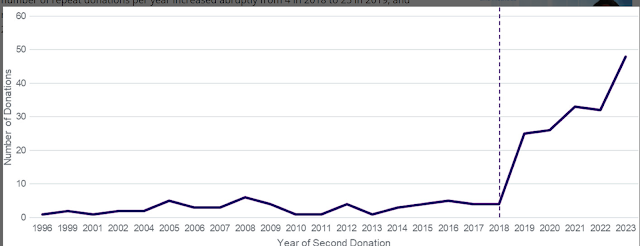In Israel, where commercial surrogacy is legal, surrogates are more and more coming from educated and religious communities.
Haaretz has the story:
Married, Educated, Not in It for the Money: The New Profile of Israeli Surrogate Mothers. Who are the Israeli women who wish to be pregnant and give birth for others? The answer to that question has changed dramatically over the past decade by Ronny Linder
""I'm a little tired of women telling me how disadvantaged all surrogates are, so I thought of starting a thread just for surrogates, with: name + our occupation + town. I'll go first." This is what one moderator of an open Facebook surrogacy group wrote, about a year ago – and the responses came pouring in: a computer programmer from Tekoa, a sociolinguistics Ph.D. from Kfar Sava, a school principal from Jerusalem, a postgraduate student of gender studies from Hatzeva, a lawyer from Gush Etzion, an oncology nurse from Mevasseret Zion and so on and on.
"The post and the responses to it, written in reaction to the prevalent perception that views surrogacy as bearing the potential for exploitation of disadvantaged women who must "hire out" their uteruses for money, largely reflects the great transformation, over a few short years, in the profile of surrogate mothers and of the entire field in Israel.
...
"Since the surrogacy law was legislated in 1996, almost 1,300 children have been born in Israel through surrogacy procedures. In recent years, the number has averaged around 80 children per year. Data collected by the Health Ministry about surrogate mothers between 2022 and 2023, reveals the changes in the profiles of women who choose to take on the task, as compared with the last study, in 2010. That study, which reviewed surrogate mothers during the years 1996-2010, was conducted by Etti Samama as part of the work for her doctoral thesis in health-system management at Ben-Gurion University. To compile recent data, Adam Ringel and Eti Dekel, for many years the national supervisor of the surrogacy law, collected information from 246 cases – 90 percent of the cases filed with committee in the last couple of years.
...
"The data indicate a fundamental change in the socio-economic status of women who choose to become surrogates. In terms of education, while in 2010 the majority of surrogate mothers had a high school education (70 percent), nearly one fifth (18 percent) had less than 12 years of schooling, and only 7 percent had academic degrees. Less than a decade and a half later, however, the picture has been transformed: 65 percent of surrogate mothers have an academic degree, and only about one fifth have only a high school education (14 percent) or less than 12 years of schooling (8 percent). The proportion of those with academic degrees among surrogates is significantly higher than that group's share of the population, which is 38 percent.
"A similarly changed picture emerges in terms of employment: In 2023, only 2.5 percent of surrogates were unemployed, compared with 25 percent in 2010. No less interesting is the finding regarding geographical dispersal of surrogates, as compared with the general public: In recent years, almost half (45 percent) of them come from kibbutzim, moshavim and organized communities – compared with just 12 percent in 2010.
...
"An absolute majority of surrogates come from [the world of] religious Zionism, on the one hand, or are secular women from kibbutzim and other organized communities, on the other," Ringel elucidates. "These two groups are seemingly worlds apart, but in the world of surrogacy, you see the resemblance between them. These are independent, strong women, with a fully developed values-based worldview, who are looking to do something big for others, who see surrogacy as a calling, as female empowerment and as the ultimate giving."
"What happened between 2010 and 2024 that led to such dramatic change in the profile of surrogate mothers? Experts in the field ascribe the change mainly to the opening up of the option for married women to become surrogates, beginning in 2010 – a move that significantly increased the pool of potential surrogates and also changed their socio-economic backgrounds.
"This is indeed a transformation: in 2010, all surrogates were unmarried women, 75 percent of them divorced, the rest single (and a few widows). In contrast, in 2022-2023, 80 percent of surrogates were married or in relationships, and only 20 percent were divorced or single.
...
"There was always an altruistic element with surrogates, but ever since married and more affluent women entered the picture – the economic part became more of a bonus, rather than the main motive," Dekel points out."





